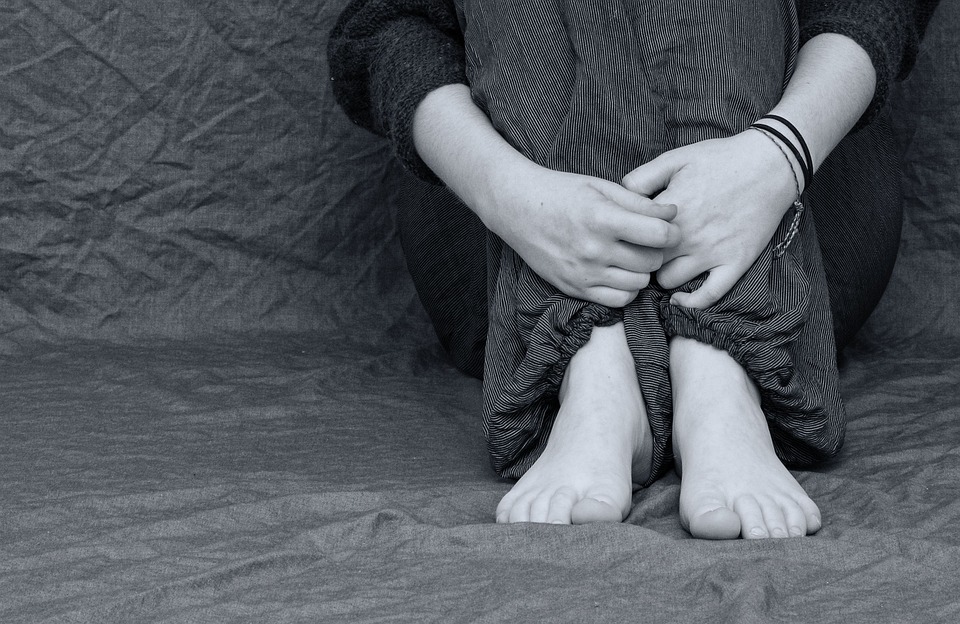Pain, sorrow, and grief are natural reactions to loss. Additionally, problems in our daily life can take a toll on us. From workplace burnouts to family drama, a bad breakup to a shaky divorce, financial constrictions to academic constraints—there’s no telling what the final trigger might be that shakes our mental stability. And when we’re pushed to that limit, depression, anxiety, and stress often follow; and we’re unsure of how long it’ll last.
At the root of all such problems lies guilt: you’re either wrought with guilt or besotted with regret. Whether it’s depression following the death of a loved one, stress over a half-decent exam, or anxiety related to a close personal relationship—guilt can be devastating when it’s allowed to go unchecked.
Weight Loss: One Way in Which Repressed Guilt Manifests Itself
People coping with the loss of a loved one often face unhealthy and rapid weight loss. In addition to denial, sleeplessness, anger, we also often begin to be less healthy. It’s a gradual thing, but we end up noticing that we’re losing weight—and many times we’re unable to pinpoint what’s causing this sudden disinterest in food.
The fact is that we lose the motivation to eat—and raw hunger is simply not good enough. We might not know it, but in our minds, we’re too preoccupied even to notice that we’re unintentionally not eating enough, or eating healthily.
Low self-esteem, depression, anxiety, and poor stress management have all been linked to drastic weight loss. The tendency to stop eating or drinking is commonly observed in grieving and mourning individuals—many of us unknowingly do it to punish ourselves. The act is low key linked with seeking gratification through self-harm, as it revolves around hurting one’s physical body in order to find relief.
But the relief, naturally, never comes—unless we find a therapeutic outlet or treatment.
From Fiction: The Best Silver Screen Depiction of Weight Loss Caused by Depression

Later on in the movie, we’re told that the protagonist’s insomnia and weight loss was a direct result of repressed anxiety and guilt. The catch was that he couldn’t remember what was causing this complication, and tried drowning himself in stimulants, smoking, and even caffeine overdose.
Nothing helps him—because he doesn’t know the root cause. The incident that causes these depressive episodes is hidden deep inside his mind, and comes out in the form of sleep irregularities and deadly weight loss.
Fact: The Machinist Got it Right
Anderson’s movie hit the nail on the head: without knowing what’s causing the problem, there is no curing it. Sleep deprivation, weight loss, depression, are all symptoms of a deeper underlying problem. In real life, too, things play out in a similar fashion. People like to bury unpleasant or disturbing incidents deep in their subconscious, never talking about them, only to notice they’re developing eating disorders and are deprived of sleep.
If you’ve ever been in a similar situation where you can see your body is being affected but don’t know what might be causing it, hypnotherapy can help you identify the root cause. A hypnotherapist helps you look deep into your own past and experiences, gently forcing repressed sentiment out so that it can be addressed and the issues treated. To book a hypnosis session at Blossom Hypnosis, visit the clinic in Pittsford, NY. You can also ask for a Skype session with Rekha here.
Links:
https://www.hindawi.com/journals/jobe/2011/515803/
https://www.healthdirect.gov.au/causes-of-anorexia-nervosa
https://www.ncbi.nlm.nih.gov/pmc/articles/PMC4369550/
https://www.webmd.com/depression/guide/depression-grief#2



Be First to Comment